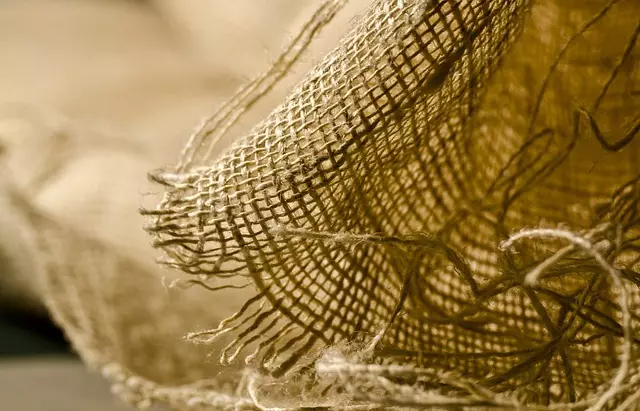Muscle soreness, commonly known as DOMS, often occurs after intense physical activity or when new exercise routines are introduced. It results from microscopic muscle fiber tears that trigger an inflammatory response. Understanding the physiology behind DOMS is crucial for athletes and fitness enthusiasts to effectively manage training without excessive pain. Muscle soreness serves a dual role, acting both as a protective mechanism against overuse and as an indicator of the body's adaptation to exercise-induced stress.
The mulungu herb, sourced from the leaves of Mitragyna speciosa, has been recognized for its potential to alleviate muscle soreness due to its analgesic properties, which are supported by both traditional and scientific evidence. When used as part of a recovery regimen that includes hydration, nutrition, and rest, mulungu can enhance comfort and potentially improve athletic performance by facilitating faster recovery.
While mulungu is gaining attention for its pain-relief benefits, it's important to note that it should be used responsibly and under professional guidance. This is particularly true when considering the use of herbal supplements like kratom, which also offer pain relief through different alkaloid compositions. The combination of mulungu with kratom may offer synergistic benefits for muscle soreness relief, including anti-inflammatory and antioxidant effects that support recovery and overall well-being. However, individuals should consult healthcare professionals before integrating these supplements into their health regimen, especially if they have pre-existing conditions or are taking other medications. A holistic approach to recovery, potentially aided by the mulungu herb and similar natural remedies, can provide an alternative to synthetic pain relief options with fewer side effects.
Muscle soreness can be a formidable hindrance to those striving for peak physical performance, often leading to reduced activity levels and compromised fitness goals. This article delves into the multifaceted nature of muscle soreness and its implications on athletic endeavors. A spotlight is cast on the mulungu herb, a natural remedy traditionally used in alleviating muscular discomfort. Exploring the therapeutic potential of the mulungu herb sets the stage for understanding its role alongside kratom supplements in promoting enhanced recovery and muscle soreness relief. Through a comprehensive examination of both substances, we uncover the synergy between them, offering valuable insights into how they can be leveraged to support muscle health and overall well-being.
- Understanding Muscle Soreness and Its Role in Physical Performance
- Exploring the Mulungu Herb: A Natural Approach to Muscle Soreness Relief
- The Synergy of Kratom Supplements and Mulungu Herb for Enhanced Recovery
Understanding Muscle Soreness and Its Role in Physical Performance

Muscle soreness, often referred to as delayed-onset muscle soreness (DOMS), is a common experience among individuals engaging in physical activities, especially when introducing new exercises or after intense workouts. This phenomenon is a natural response to physical exertion, where the body experiences microscopic tears in the muscle fibers, triggering an inflammatory response that can lead to discomfort and pain. Understanding this physiological process is crucial for athletes and fitness enthusiasts who aim to maintain consistent training regimens without succumbing to debilitating soreness. The role of muscle soreness is multifaceted; it can serve as a protective mechanism, discouraging further strain on damaged tissues, or as an indicator of the body’s adaptive response to exercise-induced stress.
In the quest for effective relief strategies, natural supplements such as the mulungu herb have gained attention in both scientific research and anecdotal reports for their potential to alleviate muscle soreness. Mulungu, derived from the leaves of the psychoactive tree known scientifically as Mitragyna speciosa, is closely related to kratom and is believed to share similar properties. Its traditional use among indigenous communities for pain relief has been supported by studies suggesting its analgesic effects, which may be beneficial for individuals experiencing muscle soreness following physical exertion. By incorporating mulungu into a comprehensive recovery plan that includes proper hydration, nutrition, and rest, individuals may find improved comfort and enhanced performance capabilities. This holistic approach to managing muscle soreness can contribute to the optimization of physical training and recovery, allowing for consistent progress in one’s fitness journey.
Exploring the Mulungu Herb: A Natural Approach to Muscle Soreness Relief

The mulungu herb, a natural remedy sourced from the branches and leaves of the Ceiba pentandra tree, has long been recognized in traditional medicine for its analgesic properties. Rich in alkaloids, including hirsuteine and speciogynine, mulungu is believed to interact with opioid receptors in a manner that may help alleviate pain. Its use as a remedy for muscle soreness, particularly after intense physical activity or injury, has been documented among various indigenous cultures. Scientific research into the efficacy of mulungu for muscle relief is ongoing, but preliminary studies suggest that it could be a promising alternative to conventional pain management strategies. Users often report a reduction in discomfort and an improvement in their recovery process when incorporating mulungu into their wellness routine. Moreover, its natural origins make it an attractive option for those seeking a non-addictive solution to manage pain associated with muscle soreness.
Kratom, another botanical supplement from the same family as mulungu, has gained popularity for similar reasons. The active compounds found in kratom, such as mitragynine and 7-hydroxymitragynine, are known to possess pain-relieving qualities. While both herbs share some commonalities, their alkaloid profiles differ, which can influence their specific effects and applications. Users may opt for one herb over the other based on personal experience or the nature of their discomfort. It is crucial to approach the use of these supplements with caution, adhering to recommended dosages and consulting healthcare professionals, especially when integrating them into existing health regimens. Proper dosing and safe usage are key to maximizing the benefits of mulungu and kratom for muscle soreness relief.
The Synergy of Kratom Supplements and Mulungu Herb for Enhanced Recovery

Kratom supplements have garnered attention in various health and wellness practices, including muscle soreness relief. When combined with the Mulungu herb, the synergistic effects can potentiate a more effective recovery process for individuals experiencing muscle fatigue or soreness. Traditionally used in Thai medicine, Mulungu herb is known for its anti-inflammatory properties and its ability to promote relaxation without causing drowsiness. This makes it an ideal complement to kratom, which also exhibits analgesic and anti-inflammatory effects. The combination of these two natural substances may help alleviate muscle soreness by reducing inflammation and modulating pain perception, allowing for a more holistic approach to recovery. Users often report that the joint action of kratom and Mulungu herb leads to a smoother recovery, with less discomfort during the post-exercise period.
Furthermore, the use of both kratom supplements and Mulungu herb can be particularly beneficial for those engaged in regular physical activity or who experience chronic muscle pain. The anti-oxidant rich profile of Mulungu may aid in neutralizing free radicals produced during intense workouts, contributing to a faster recovery and reducing the risk of injury over time. Additionally, the combination is often favored for its potential to enhance overall well-being without the adverse side effects commonly associated with synthetic pain relief options. Users should always consult with healthcare professionals before incorporating kratom or any herbal supplements into their routine, especially if they have existing health conditions or are taking other medications.
muscle soreness, kratom supplements, mulungu herb, physical performance recovery, natural remedies for muscle soreness.
In conclusion, muscle soreness can significantly impact an individual’s physical performance and overall well-being. Understanding the mechanisms behind it is the first step toward effective management. The traditional mulungu herb, with its anti-inflammatory properties, offers a promising natural solution for alleviating muscle soreness. When combined with kratom supplements, the synergy between these two substances can lead to enhanced recovery, potentially mitigating the effects of delayed onset muscle soreness and promoting faster return to activity. For those seeking alternatives to conventional treatments, integrating mulungu and kratom into a holistic approach may provide the relief needed without the potential side effects associated with other methods. As always, it is advisable to consult healthcare professionals before incorporating any new supplements into one’s regimen.






